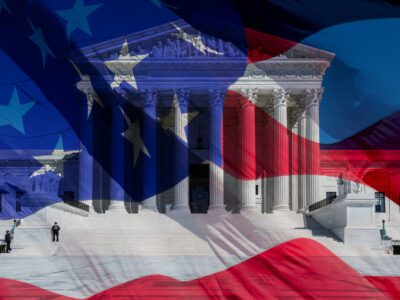BRIAN J GRABER LLC represents employees in Illinois, Indiana, and Michigan who are retaliated against in violation of federal whistleblower statutes. Congress passed several statutes containing whistleblower (anti-retaliation) provisions protecting employees in certain industries from retaliation for certain statutorily defined protected activities. Several of these whistleblower protection statutes adopted the contributing-factor burden-shifting framework of the Wendall H. Ford Aviation Investment and Reform Act for the 21st Century (AIR-21) whistleblower protection provisions. These whistleblower protection statutes employing the contributing factor burden-shifting framework of AIR-21 cover employees working in certain industries where the health, safety, and well-being of the public depend on whistleblowers coming forward to do the right thing to protect the public. These whistleblower protection statutes adopting the contributing factor burden-shifting framework include the following:
- Surface Transportation Assistance Act, (STAA), 49 U.S.C. 31105 – protecting truck drivers, commercial bus drivers, and mechanics from retaliation for engaging in statutorily protected activities related to the safety of commercial motor vehicles. Click here to learn more about truck driver whistleblower law.
- Energy Reorganization Act, (ERA), 42 U.S.C. 5851 – protecting employees in the nuclear industry from retaliation for reporting violations of the Atomic Energy Act. click here to learn more about Nuclear Whistleblower Law.
- Wendall H. Ford Aviation Investment and Reform Act for the 21st Century, (AIR-21), 49 U.S.C. 42121- protecting aviation employees from retaliation for providing information related to any alleged violation of any order, regulation, or standard of the Federal Aviation Administration or any federal law relating to aviation safety. Click here to learn more about Aviation Whistleblower Law.
- Sarbanes-Oxley Act, (SOX), 18 U.S.C. 1514A-prohibits publically traded companies from retaliating against employees who report what they reasonably believe to be fraud or securities law violations.
- Pipeline Safety Improvement Act, (PSIA), 49 U.S.C. 60129-protects certain covered employees from retaliation for reporting potential violations of federal law related to pipeline safety and other statutorily defined protected activities. Click here to learn more about Pipeline Whistleblower Law.
- Federal Railroad Safety Act, (FRSA), 49 U.S.C. 20109 – protects railroad employees from retaliation for engaging in certain statutorily defined protected activities. Click here to learn more about Railroad Whistleblower Law.
- National Transit Systems Security Act, (NTSSA), 6 U.S.C. 1142 – protects transit employees from retaliation for engaging in certain statutorily defined protected activities. Click here to learn more about Transit Whistleblower Law.
- Consumer Products Safety Improvement Act, (CPSIA), 15 U.S.C. 2087 – protects employees of consumer product manufacturers, importers, distributors, retailers, and private labelers for engaging in certain statutorily protected activities within the jurisdiction of the Consumer Product Safety Commission.
- Affordable Care Act, (ACA), 29 U.S.C. 1558 – protects employees from retaliation for engaging in statutorily defined protected activity involving violations of the ACA.
- Seaman’s Protection Act, (SPA), 46 U.S.C. 2114 – protects seamen from retaliation for certain statutorily defined protected activities. Click here to learn more about Maritime Whistleblower Law.
- Consumer Financial Protection Act, (CFPA), 12 U.S.C. 556 – protects employees performing tasks related to consumer financial products or services from retaliation for certain statutorily defined protected activity.
- FDA Food Safety Modernization Act, (FSMA), 21 U.S.C. 399d – protects employees of food manufacturers, distributors, packers, and transporters from retaliation for certain statutorily protected activities. Click here to learn more about the Food Safety Whistleblower Law.
- Moving Ahead for Progress in the 21st Century Act, (MAP-21), 49 U.S.C. 30171 – protects employees of vehicle manufacturers, part suppliers, and dealerships from retaliation for certain statutorily defined protected activities.
- Taxpayer First Act, (TFA), 26 U.S.C. 7623(d) – protects employees from retaliation engaging in certain statutorily protected activities like reporting underpayment of taxes in violations of internal revenue laws or tax fraud.
- Criminal Antitrust Anti-Retaliation Act, (CAARA), 15 U.S.C. 7a-3 – protects employees from retaliation for engaging in statutorily defined protected activity related to reporting criminal antitrust violations.
- Anti-Money Laundering Act, (AMLA), 31 U.S.C. 5323(g) & (i) – protects employees from retaliation for reporting potential money laundering violations of federal law and other statutorily defined protected activity.

Employers defending against these whistleblower claims brought under the AIR21 burden-shifting framework began claiming the employee needed to prove his or her employee acted with “retaliatory intent.” In Tompkins v. Metro-N. Commuter R.R., 983 F.3d 74, 82 (2d Cir. 2020) the court held that the FRSA requires proof of retaliatory motive. The Second Circuit’s opinion requiring whistleblowers to prove retaliatory intent placed that Circuit in direct conflict with the Fifth and Ninth Circuits.

In Murry v. UBS Securities, LLC, et al., 601 U.S. ___ (2024) the U.S. Supreme Court ruled against the employer on the question before the Court is whether the phrase “discriminates against an employee . . . because of” in Sarbanes-Oxley in 1514A requires a whistleblower additionally prove his employer acted with “retaliatory intent.” The U.S. Supreme Court acknowledges that Sarbanes-Oxley requires courts to apply the legal burdens of proof set forth in the Wendall H. Ford Aviation Investment and Reform Act for 21st Century (AIR21).
The Supreme Court held this incorporated burden-shifting framework provides the whistleblower bears the burden to prove that his protected activity was a contributing factor in the unfavorable personnel action alleged in the complaint. 49 U.S.C. 42121(b)(2(B)(i). If the whistleblower makes the showing, the burden shifts to the employer to show “by clear and convincing evidence” that it would have taken the same unfavorable personnel action in the absence of the protected activity. 49 U.S.C. 42121(b)(2)(B)(ii).
The Supreme Court noted that Congress incorporated the easier-to-satisfy “contributing factor” framework into a series of similar whistleblower statutes to protect non-civil-service employees in industries where whistleblowing plays an especially important role in protecting the public including, as noted above, the airline industry (AIR21) and the securities industry (Sarbanes-Oxley).
The Supreme Court held that Section 1514A’s text does not reference or include a “retaliatory intent” requirement, and the provision’s mandatory burden-shifting framework cannot be squared with such a requirement. While a whistleblower bringing a Section 1514A claim must prove his protected activity was a contributing factor in the unfavorable personnel action, he need not also prove that his employer acted with “retaliatory intent.” The statute is clear that whether an employer “discriminated” in that sense has to be resolved through the contributing factor burden-shifting framework that applies to Sarbanes-Oxley whistleblower claims.
The Supreme Court held that a whistleblower who invokes 18 U.S.C. 1514A bears the burden to prove his protected activity was a contributing factor in the unfavorable personnel action alleged in the complaint, 49 U.S.C. 42121(b)(2)(B)(i), but he is not required to make some further showing that his employer acted with retaliatory intent.

 Federal Law Bans Mandatory Arbitration of Sexual Harassment Claims
Federal Law Bans Mandatory Arbitration of Sexual Harassment Claims